Alumni - Faculty
-
Arnold, Craig (‘08 - ‘13)
Mechanical and Aerospace Engineering
Research in the Arnold group primarily focuses on laser processing and transport in materials with particular emphasis on shaping laser-material interactions. The group strives to develop a deep understanding of the fundamental materials and optical physics, in order to have a direct impact on applications at the frontiers of technology in fields ranging from energy to biology and imaging to nanoscience.
Key examples of Arnold’s work in this area include the research and development of optical trap assisted direct-write nanopatterning (Trap and Zap), the tunable acoustic gradient index of refraction (TAG) lens for high-speed varifocal imaging and materials processing, laser direct-write printing for complex materials in biological and energy applications, and solution based printing methods of chalcogenide glass for mid-infrared photonic applications. The research is primarily experimental in nature with a mix of fundamental and applied projects
-
Gmachl, Claire (‘09 - ‘11)
Electrical Engineering
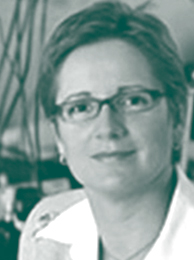
Gmachl’s research group is working on the development of new quantum devices, especially lasers, and their optimization for systems applications ranging from sensors to optical communications. Their special focus is currently on Quantum Cascade (QC) lasers, a novel type of semiconductor injection laser based on electronic intersubband transitions in the conduction band of a coupled quantum well heterostructure. Quantum wells are only few atomic layers thick slivers of one type of semiconductor material interleaved with another type of semiconductor, the barrier. Many performance features of the lasers, e.g. their emission wavelength in the mid- to far-infrared, power, or modulation capabilities, are designed into the device by choice of the quantum well and barriers thicknesses.
Current projects include the development of high temperature, high power, high efficiency QC lasers. Widely tunable, monolithic and external cavity, QC lasers are being developed for optical sensors in environmental, medical, and security applications. While Gmachl’s group is focused mainly on the development of the lasers, they maintain strong collaborations with many expert spectroscopists in academia, government and industrial labs, who are building sensor systems.
-
Haykel, Bernard (‘08 - ‘11)
Near Eastern Studies
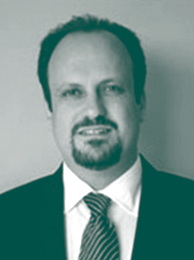
Bernard Haykel is professor of Near Eastern Studies at Princeton University. He is also director of The Institute for the Transregional Study of the Contemporary Middle East, North Africa and Central Asia and Director of the Princeton Project on Oil and Energy in the Middle East.
Dr. Haykel’s primary research interests center on Islamic political movements and legal thought as well as Saudi Arabia’s politics and history. He has published extensively on the Salafi movement in both its pre-modern and modern manifestations. He has recently completed a second book on the religious politics of Saudi Arabia since the early 1950s. Dr. Haykel holds a doctorate from Oxford University.
-
Loo, Lynn (‘11 - ‘11)
Chemical and Biological Engineering

Research in the Loo laboratory is in the area of materials chemistry and physics of complex, soft materials. Specifically, Loo and colleagues are interested in electrically-active polymeric and molecular materials. They hope to elucidate the fundamental processing-structure-property relationships that govern these materials to generate design rules and guidelines for the rational synthesis of materials with tailored properties and the development of innovative processing and patterning technologies for the realization of low-cost, light weight, mechanically flexible thin-film devices, such as organic transistors and solar cells.
Currently, members of the Loo group are examining how specific processing conditions affect the structure evolution of organic and polymer materials, and how structure development can in turn impact applications-relevant macroscopic electrical and physical properties. Work is being carried out on functional block copolymers, solution-processable organic and polymeric conductors and semiconductors, as well as conjugated self-assembled monolayers.
-
Medvigy, David (‘16 - ‘16)
Geosciences
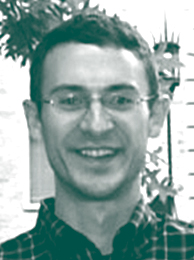
Medvigy’s research focuses on understanding local-regional scale variability in climate and terrestrial biosphere, with a focus on the processes linking these two components of the Earth system. This research includes study of the relationships between the atmospheric circulation, terrestrial ecology, and biogeochemical fluxes, and how all of these are responding (and are projected to respond) to anthropogenic forcings. His lab addresses these issues through numerical models, including variable-resolution general circulation models, mesoscale meteorological models, and mechanistic models of ecosystem composition, structure, and functioning.
A specific area of research focuses on the climatic consequences of deforestation. Over the next 40 years, 40% of the Amazon rainforest is projected to become deforested. This has consequences for rainfall, temperature, regional winds, and ecosystem structure and functioning. In addition, these regional-scale changes may impact the large-scale Hadley and Walker circulations, and thus have global consequences. To complicate matters, the net response to deforestation may strongly depend on both the total area deforested and the spatial pattern of deforestation. Medvigy is currently using variable-resolution general circulation models to address these problems.
Another key area of research involves high-frequency climate variability. Daily fluctuations in sunshine, rainfall, and temperature are strongly coupled to ecosystem function, with effects that accumulate through annual and decadal time scales. Medvigy is currently seeking to elucidate the consequences of the projected changes in daily-scale variability over the next 100 years for terrestrial ecosystem structure, composition, and functioning.
-
Oppenheimer, Michael (‘08 - ‘11)
Princeton School of Public and International Affairs

Michael Oppenheimer is the Albert G. Milbank Professor of Geosciences and International Affairs and the Princeton Environmental Institute. He is director of the Program in Science, Technology and Environmental Policy (STEP) at the Princeton School of Public and International Affairs and faculty associate of the Atmospheric and Ocean Sciences Program, Princeton Environmental Institute, and the Princeton Institute for International and Regional Studies. He is also a visiting professor of law at NYU School of Law.
He joined the Princeton faculty after more than two decades with The Environmental Defense Fund, a non-governmental, environmental organization, where he served as chief scientist and manager of the Climate and Air Program. Oppenheimer is a long-time participant in the Intergovernmental Panel on Climate Change (IPCC) which won the Nobel Peace Prize in 2007, serving most recently as a lead author of the IPCC’s Fourth Assessment Report. He is currently a member of the National Academy of Sciences’ Panel on Alternative Liquid Transportation Fuels. He is also a science adviser to The Environmental Defense Fund.
His interests include science and policy of the atmosphere, particularly climate change and its impacts. Much of his research aims to understand the potential for “dangerous” outcomes of increasing levels of greenhouse gases by exploring the effects of global warming on ecosystems such as coral reefs, on the ice sheets, and on sea level. He also studies the role played by nongovernmental organizations in the policy arena, the role of scientific learning and scientific assessment in decisions on problems of global change, and the potential value of precautionary frameworks.
-
Schulhofer, Sam (‘08 - ‘11)
Princeton School of Public and International Affairs
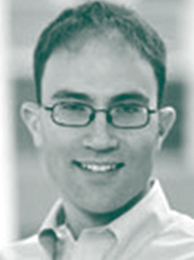
Schulhofer-Wohl’s research focused on macroeconomics, economic development and applied econometrics. Projects studied methods for distinguishing age, period and cohort effects; changes in the age structure of mortality in the course of an economy’s development; and the implications of heterogeneous preferences and heterogeneous income risk in macroeconomics. Ongoing research analyzes the effect of recent economic volatility on consumer behavior and the nature of migration in developing countries.
-
Sigman, Daniel (‘08 - ‘11)
Geosciences
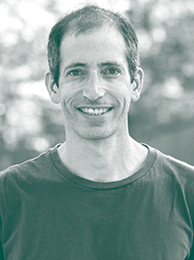
Sigman studies the cycles of biologically important elements and their interaction with changing environmental conditions through the course of Earth history. His current research activities include the development of stable isotope methods by which to track the marine nitrogen cycle, today and in the past, and the construction of simple geochemical models for paleoceanographic and Earth history studies.
Much of his work to date has focused on the oscillation between ice ages and interglacial periods that has dominated Earth’s climate for the last two million years. These cyclic climatic changes provide an important test case for the interaction between physical and biological processes in setting environmental conditions on Earth. Of particular interest are the causes and effects of past changes in atmospheric concentration of carbon dioxide.
-
Socolow, Robert (‘08 - ‘19)
Mechanical and Aerospace Engineering
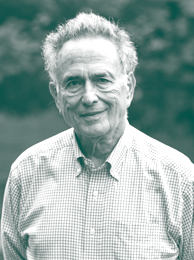
Professor Socolow’s current research focuses on global carbon management and international equity, fossil-carbon sequestration, and geoengineering. He is the co-principal investigator (with ecologist, Stephen Pacala) of Princeton University’s Carbon Mitigation Initiative (CMI), a $30-million dollar, fifteen-year (2001-2015) project, supported by BP and Ford.
Under CMI, Princeton has launched new, coordinated research in environmental science, energy technology, geological engineering, and public policy. Other research interests include efficient use of energy, renewable energy, nuclear energy, and the nitrogen cycle.
-
Tromp, Jeroen (‘09 - ‘11)
Geosciences

Tromp’s primary research areas are in Theoretical & Computational Seismology. Research topics include: surface waves, free oscillations, and body waves, seismic tomography, numerical simulations of 3-D wave propagation, and seismic hazard assessment. In collaboration with the late Princeton Geosciences faculty member Tony Dahlen he published the book, Theoretical Global Seismology.



